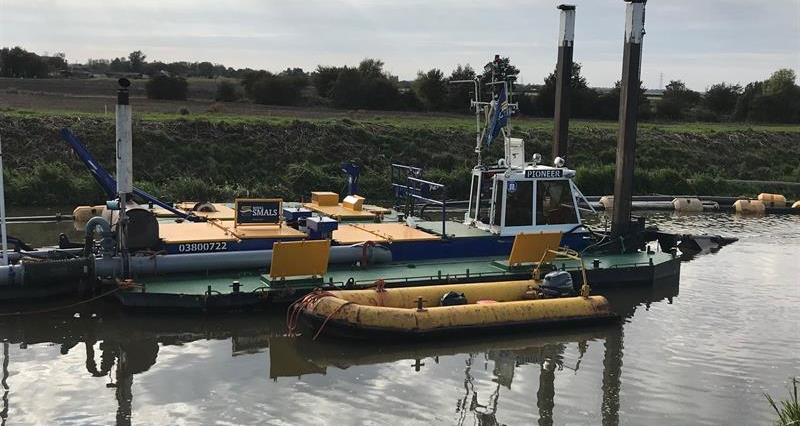The dredging operation, part of an extensive action plan drawn up by the NFU, Environment Agency, Lindsey March Drainage Board, Witham Fourth District IDB and others, will remove sediment from targeted locations across 5.5km of waterway in south Lincolnshire.
The stretch includes 5km of river between Thorpe Culvert and Dovecotes Farm and 650m of the eastern end of the relief channel.
Read more: The NFU's work in the aftermath of the flooding
The specific locations being targeted are where silt has built up higher than is ideal for maintaining a free flow of water, the EA said.
This first phase of dredging is expected to last several months and will be followed by a second stage next autumn, tackling areas of sediment across 1.2km of the western end of the relief channel. The timings are subject to change, the agency added.
On 12 June 2019, intense rain led to the breach of the Wainfleet Relief Channel, sparking a massive emergency response, including the military. The area saw 74.6mm of rain in just one day.
Across south Lincolnshire, thousands of acres of farmland were swamped as drainage systems battled to get water away quick enough, but the issues at Wainfleet were just beginning.
Around noon a section of the bank burst open, flooding at least 550 acres of farmland in Wainfleet Common and people were forced to flee their properties in Wainfleet itself.
NFU East Midlands environment adviser Simon Fisher has been heavily involved with ensuring the voices of farmers inundated by the devastating flooding have been heard throughout the mopping up operation. He welcomes the move.
"Dredging where there are high points of silt in the channel is one part of the comprehensive action plan that the NFU helped to draw up, and which is designed to reduce the risk of flooding in future," he said.
"The NFU continues to be involved in the steering group and a project to slow the flow of water off the so-called “upland” part of the Steeping catchment.”
